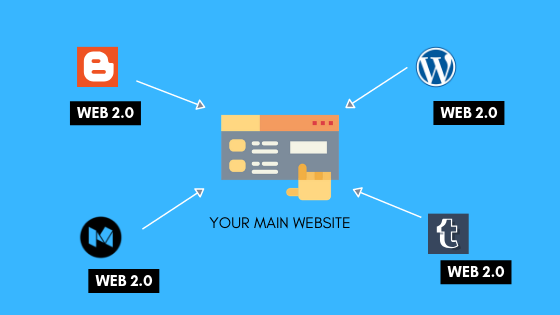The digital landscape continues to evolve, and Web 2.0 platforms play a fundamental role in how individuals and businesses engage with their audiences. The term "Web 2.0" refers to the transition towards an interactive, user-generated web experience that emphasizes sharing, collaboration, and community. From social networks and blogs to video-sharing sites, these platforms allow users to share content and connect with like-minded individuals in their niches. However, with a plethora of options available, selecting the right Web 2.0 platforms tailored to your niche can be a daunting task.
Understanding Your Niche
Before diving into the various Web 2.0 platforms, it’s crucial to have a clear comprehension of your niche. Here are some questions you should ask yourself:
-
Who is my target audience?
- Understand demographics like age, interests, and online behaviors to identify where your audience spends their time.
-
What type of content resonates with my audience?
- Different niches perform better on different platforms, whether it’s text, video, images, or a combination of these.
- What are my marketing goals?
- Decide if you want to increase brand awareness, generate leads, drive traffic to your site, or build a community.
Once you have a clear understanding of your niche, you can identify the Web 2.0 platforms that align with your goals and audience.
Popular Web 2.0 Platforms By Niche
-
Blogging Platforms (e.g., WordPress, Medium, Blogger)
- Ideal for businesses, writers, and creatives focused on delivering long-form content, how-to guides, tutorials, or personal stories.
- Recommendation: Use WordPress for customization and control or Medium for a built-in audience and easy-to-use interface.
-
Social Media Platforms (e.g., Facebook, Instagram, Twitter, TikTok)
- Excellent for brands that want to engage directly with their audience through images, posts, reels, or tweets.
- Recommendation: Choose Instagram for visual-heavy niches (like beauty or fashion) and TikTok for viral video marketing, especially in younger demographics.
-
Video Platforms (e.g., YouTube, Vimeo, TikTok)
- Particularly effective for businesses in niches such as entertainment, education, DIY, and product reviews.
- Recommendation: YouTube is ideal for in-depth tutorials and how-tos, while TikTok works well for quick tips or entertaining content.
-
Discussion Forums (e.g., Reddit, Quora, Stack Exchange)
- Perfect for tech, gaming, health, and niche topics that thrive on community questions and answers.
- Recommendation: Reddit offers niche-specific subreddits, while Quora gives a more professional tone for expert advice and thought leadership.
-
Content Aggregator Sites (e.g., Scoop.it, Flipboard)
- Suitable for curating content and establishing authority in knowledge-heavy niches or industries.
- Recommendation: Use Scoop.it for niche curation and thought leadership sharing.
- Visual Platforms (e.g., Pinterest, DeviantArt)
- Excellent for creative, artistic niches including fashion design, home decor, and culinary arts through visual content.
- Recommendation: Pinterest is great for driving traffic to your site through infographics and eye-catching images.
Evaluating Platform Features
Once you have a list of potential platforms, consider evaluating them based on specific criteria:
-
User Base: Assess the platform’s audience size and demographics to see if they align with your target audience. Look for user statistics and trends.
-
SEO Benefits: Determine if the platform helps in improving your search engine optimization—does it allow backlinks, high-quality content creation, and visibility?
-
Ease of Use: Consider how easy it is to create, share, and manage content on the platform. A user-friendly interface can save time and enhance productivity.
-
Engagement Opportunities: Look at how the platform encourages community interaction. Are there features for commenting, sharing, and collaboration?
-
Monetization and Growth Potential: Investigate if the platform offers monetization options suitable for your niche, like sponsored content, ads, or affiliate marketing integration.
- Analytics Tools: Ensure that the platform provides analytical insights to track engagement metrics, audience behavior, and content performance.
Conclusion
Choosing the right Web 2.0 platform for your niche is essential for maximizing your online presence and achieving your digital marketing goals. By understanding your audience, selecting the platforms that resonate with your niche, and evaluating their features, you can effectively leverage these interactive tools to enhance engagement, visibility, and ultimately, grow your brand. Take the time to experiment with different platforms, gather insights, and adjust your strategies accordingly to find the perfect fit for your unique needs.
How to Choose the Right Web 2.0 Platforms for Your Niche
How to Choose the Right Web 2.0 Platforms for Your Niche
- Weight Loss Supplements
- https://www.youtube.com/@
WeightLossSupplementsHQ - Health & Wellness
- https://www.youtube.com/@
Health-WellnessHQ - Weight Loss Diets
- https://www.youtube.com/@
WeightLossDietsHQ - Weight Loss Drinks
- https://www.youtube.com/@
WeightLossDrinksHQ - Nagano Tonic Reviews
- https://www.youtube.com/@
NaganoTonicReviewsHQ - Sumatra Slim Belly Tonic Reviews
- https://www.youtube.com/@
SumatraSlimBellyTonicReviewsHQ - Honest Product Reviews
- https://www.youtube.com/@
HonestProductReviewsHQ - Weight Loss & Fitness
- https://www.youtube.com/@
WeightLossFitnessHQ - Dietary Supplements
- https://www.youtube.com/@
DietarySupplementsHQ - Supplements for Weight Loss
- https://www.youtube.com/@
SupplementsforWeightLossHQ - Fat Burner
- https://www.youtube.com/@
FatBurnerHQ
